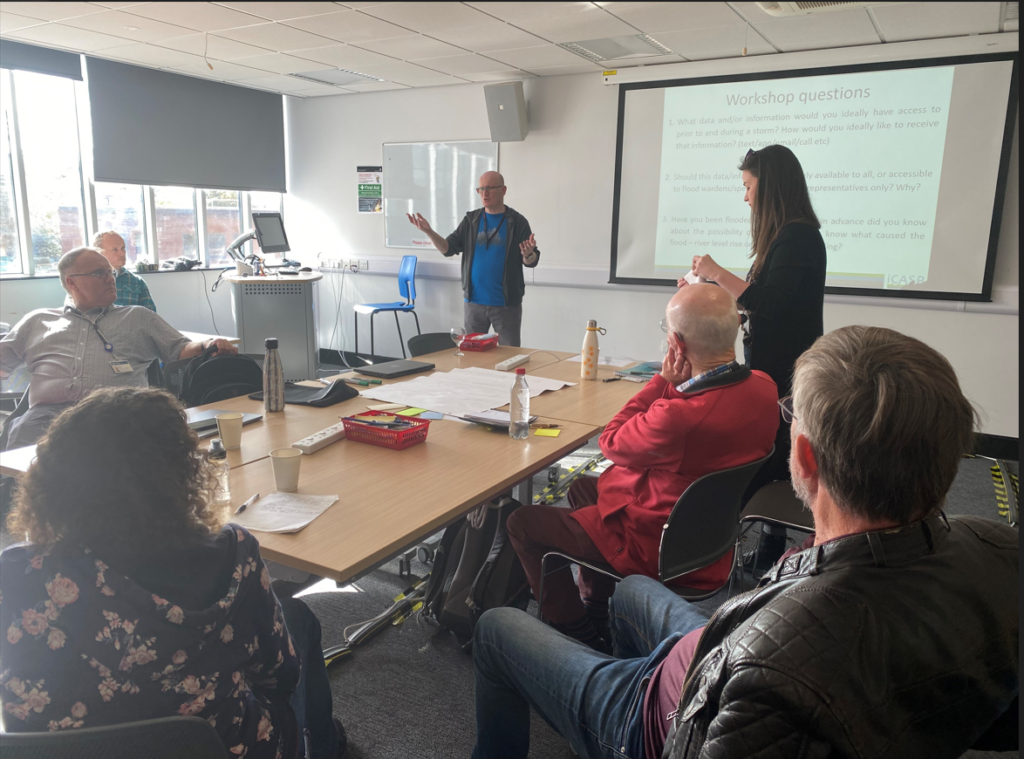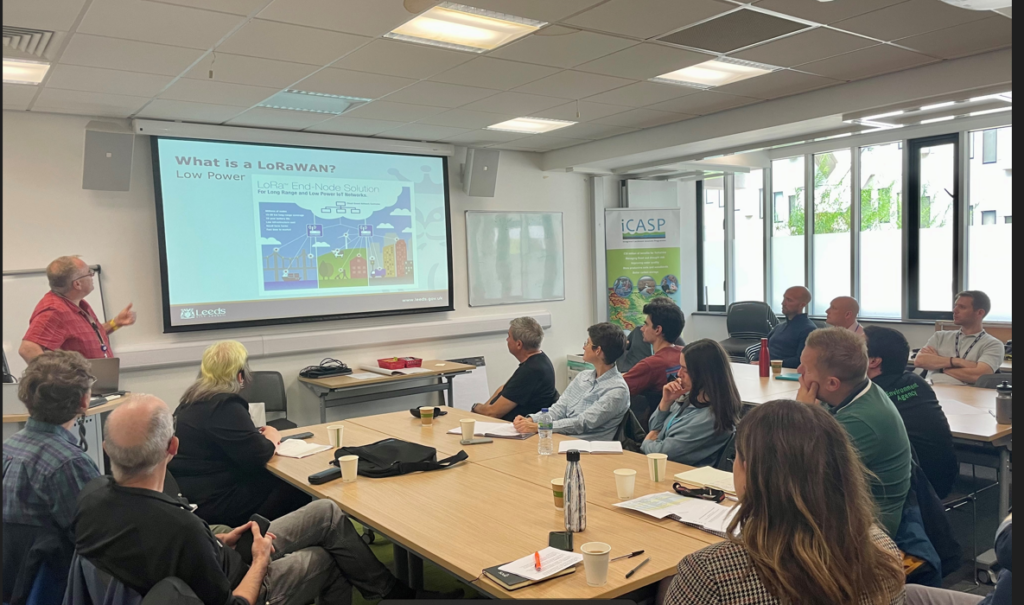
Pictured: Paul Maddison, flood manager of Wakefield Council, presents at the workshop
Plans to develop a network of digital sensors to give early warning of surface water flooding which is a real issue for West Yorkshire was the topic of a workshop held at University of Leeds.
People who have had their homes flooded, flood wardens and anyone interested in developing greater flood resilience across the region were invited to take part in the event led by iCASP Impact Translation Fellow Stephanie Bond working with Paul Maddison, flood manager of Wakefield Council.
The Digital Smart Flood Warning Systems project is led by Wakefield Council
in collaboration with Leeds City Council & Kirklees Council funded by the Governments’ Local Digital Fund. It was developed within the West Yorkshire Flood Innovation programme (WYFLIP), a collaborative network including the five lead local authorities in West Yorkshire, Environment Agency, West Yorkshire Combined Authority, Yorkshire Water and Yorkshire Integrated Catchment Solutions Programme iCASP
The project will scope possible uses for a Long Range Wide Area Network (LoRaWAN) to respond to surface water flooding in the region. LoRaWAN has the potential to transmit real-time data from sensors in the environment to a central platform. This data could be used to improve response time to flooding, or maintain flood-related infrastructure, across West Yorkshire.
This was the 2nd workshop we have organised as part of the project – the first was those employed to help manage flood events. Participants had the opportunity for to steer focus of the project, including highlighting needs, current challenges and possible solutions which a LoRaWAN may be able to address. The plan is to use outcomes from the workshop to build a business case for future funding to implement solutions.
For more information on the WYFLIP, you can watch this video


